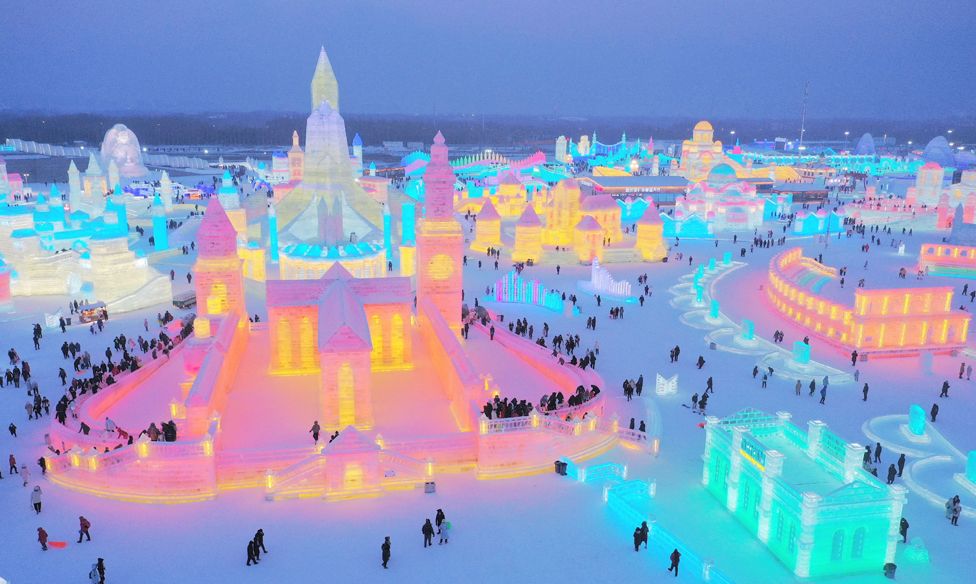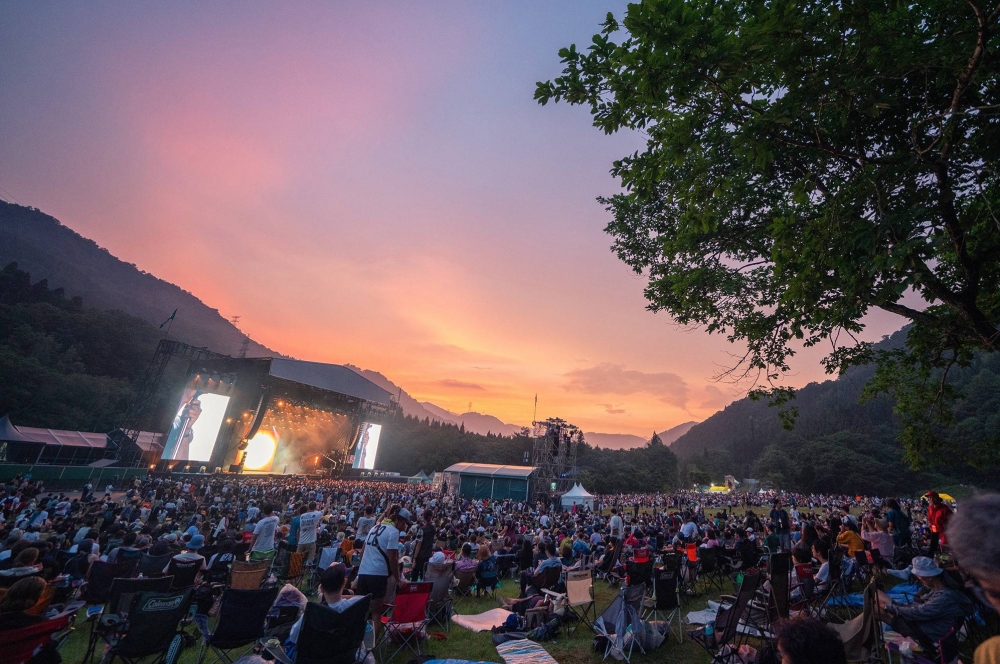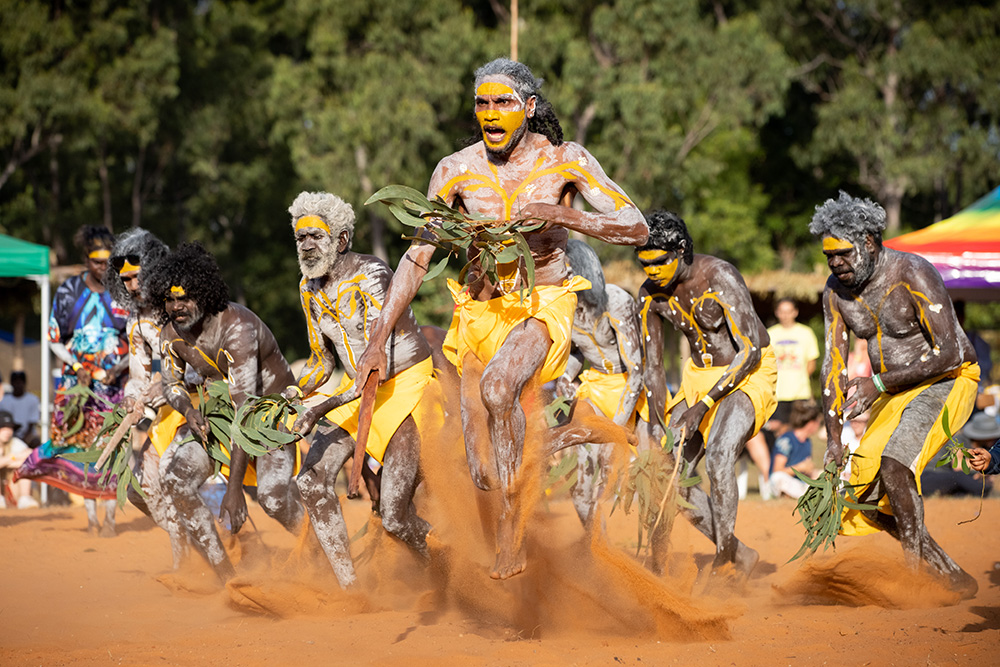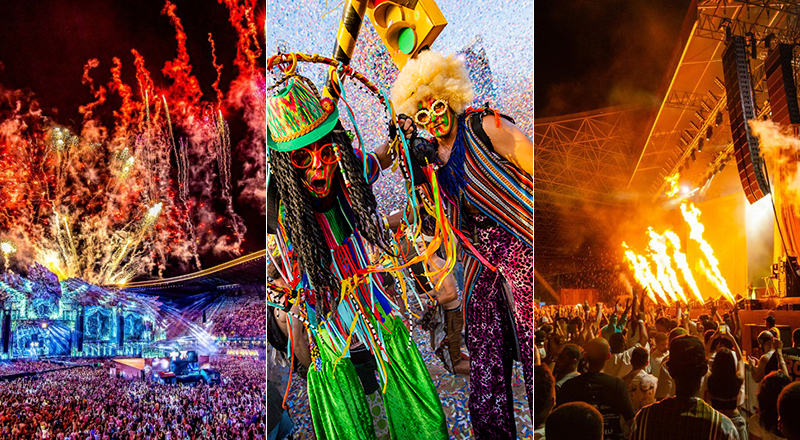nyssenate31.com – In the tapestry of global culture, traditional music festivals stand as vibrant threads that weave together the past and present, offering a window into the soul of communities worldwide. These festivals are more than mere celebrations of sound; they are echoes of heritage, preserving and showcasing the rich musical traditions that have been passed down through generations. From the serene melodies of Asia to the lively rhythms of Africa, and the folk tunes of Europe, traditional music festivals around the world are a testament to the universal language of music.
1. The Harbin Ice and Snow Festival, China

Nestled in the heart of winter, the Harbin Ice and Snow Festival in China is not just a feast for the eyes but also a symphony for the ears. Amidst the towering ice sculptures and dazzling snow structures, traditional Chinese music fills the air, warming the hearts of attendees despite the freezing temperatures. The erhu, a two-stringed violin, and the guzheng, a plucked zither, are among the instruments that bring ancient melodies to life, echoing the heritage of Chinese music in the modern world.
2. The Fuji Rock Festival, Japa

While primarily known as a rock festival, the Fuji Rock Festival in Japan also pays homage to traditional Japanese music, blending the old with the new. Amidst the backdrop of the majestic Naeba Ski Resort, performers clad in traditional attire take to the stage, their shamisen and taiko drums creating a rhythm that resonates with the natural surroundings, offering a unique fusion of tradition and contemporary music.
3. The International Folklore Festival, Bulgaria
Bulgaria’s International Folklore Festival is a vibrant celebration of traditional music and dance from across the globe. However, it is the rich Bulgarian folk music that takes center stage, with its unique vocal harmonies and the haunting sounds of the gaida (Bulgarian bagpipe) and kaval (an end-blown flute). This festival is a testament to the enduring spirit of Bulgarian heritage, inviting the world to partake in its cultural legacy.
4. The Sauti za Busara Festival, Zanzibar
The Sauti za Busara Festival in Zanzibar, Tanzania, is a celebration of Swahili music and culture that has grown to include artists from across Africa and the Indian Ocean islands. The festival’s name, which translates to “Wisdom of the Oyster,” reflects its theme of celebrating the pearls of traditional music. The soulful taarab music, with its Arabic and African influences, is a highlight, alongside the rhythmic ngoma drumming and dances, all of which tell the story of the Swahili coast’s rich cultural heritage.
5. The Festival Interceltique de Lorient, France
In the heart of Brittany, France, the Festival Interceltique de Lorient brings together Celtic cultures from around the world, including Ireland, Scotland, Wales, Cornwall, and Galicia. Bagpipes, fiddles, and harps fill the air with lively tunes, while dancers in traditional attire perform intricate steps that have been passed down through generations. This festival is a powerful reminder of the shared heritage of the Celtic nations, bridging geographical distances with the universal language of music.
6. The Garma Festival, Australia

The Garma Festival in Australia’s Northern Territory is a unique event that celebrates the culture and heritage of the Yolngu people. Set against the backdrop of the stunning East Arnhem Land, the festival features didgeridoo performances, traditional song and dance, and storytelling, offering a glimpse into the ancient traditions of Indigenous Australians. It’s a celebration that not only preserves cultural heritage but also fosters understanding and respect for Indigenous knowledge and practices.
These festivals are more than just gatherings; they are living museums, where the echoes of heritage resonate through every note and melody. They remind us of the power of music to connect us across time and space, to preserve our past, and to inspire our future. As we partake in these celebrations, we become part of a global chorus, singing the songs of our ancestors and passing the torch of tradition to the next generation.



